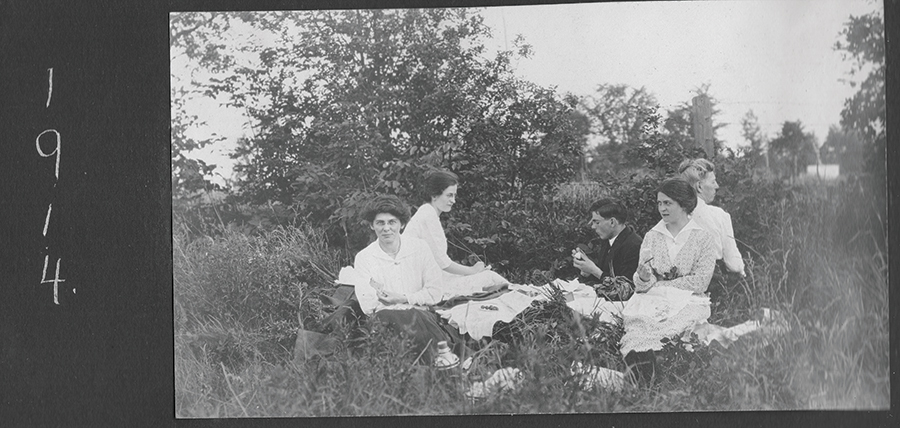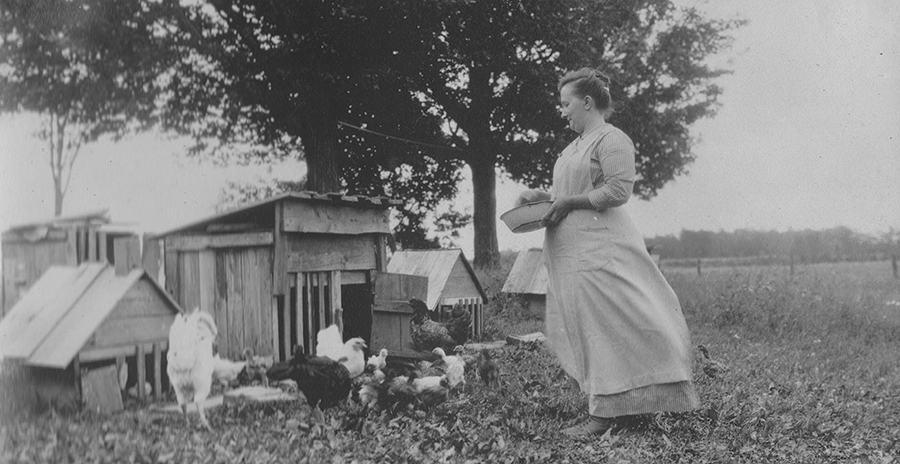Tasting the Past
Un texte de Tyson Rosberg
Paru dans le numéro Printemps/Spring 2023
Publié le : 16 février 2023
Dernière mise à jour : 17 février 2023
This project seeks to rediscover the deep connections binding food and community, reuniting physical sustenance with conviviality.
Food, Memory, and Identity in Brome-Missisquoi
First, clean and skin the beaver. Remove its head, tail, and feet. Cut the meat into small pieces, and put it into an iron kettle with water, salt, and spices. Cover and boil until the meat is tender. A large beaver cooks for about four hours.
So reads a nineteenth-century recipe for beaver stew from the Missisquoi Museum’s archives. While not exactly haute-cuisine today, the above recipe speaks to a lost time when food was carefully prepared at home. And where those who shared it were deeply bound to their communities and to the land – a connection that today exists only for many people as a nostalgic memory. Food embodies community, it is, quite literally, the source of life.
When we think about history, food may not be the first thing that comes to mind. And yet, it has always been the keystone of human existence. Food is one of our closest gateways into the past. A way to experience another time while engaging our senses in a way which no book, memoir, or diary can. Who does not have a memory of fresh-baked bread or of grandma’s homemade cookies? Who does not have a cherished family recipe, lovingly handed down across generations? Or, a meal capable of whisking one back to childhood with only just a sniff or a taste?
Food defines who we are, where we come from, and what we deem to be important. More than just details about what people ate (or did not eat), historical accounts of food provide a unique insight into the daily life of those who preceded us. Insights into social norms and etiquette, and ways of life.
The Missisquoi Museum opened in 1964. While two of its three buildings are located in Stanbridge East, the Museum has the mission of preserving the rich history and heritage of the entire Missisquoi County. Its headquarters are housed in the former brick workings of the Cornell Flour Mill, which began operation in 1830, and it is fitting that this year’s seasonal exhibit at the Museum is dedicated to giving today’s community a taste of the interplay between history, food, and communal identity. This project seeks to rediscover the deep connections binding food and community, reuniting physical sustenance with conviviality.
As part of the exhibit experience, visitors will be able to take home printed recipe cards with selected recipes from the Museum’s archives, allowing them to more fully encounter history with all of their senses.
Also featured as part of this year’s exhibit calendar will be a cooking workshop on the lost art of baking homemade bread, led by Dr. Nicholas Tošaj, professor of History at John Abbott College, author, affiliate of the Culinary Research Centre, and presenter at the Oxford Food Symposium. Professor Tošaj specializes in food history and pedagogy, and will help bring history alive for workshop participants and exhibit visitors alike.
The Missisquoi Museum is open Tuesday to Sunday, from May 21st to Oct 9th. We hope that you can come and savour our history with us.
Bon appétit!
Tyson Rosberg, Missisquoi Museum Curator


